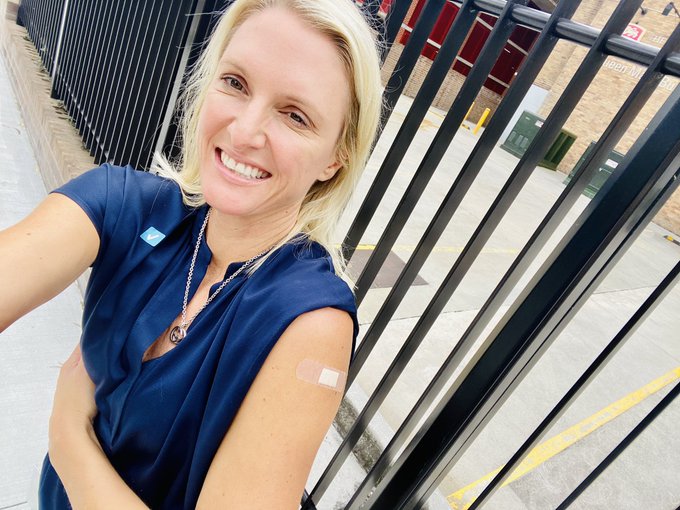
Associate Professor Prunella Blinman
MOGA Chair Associate Professor Prunella Blinman was an early recipient of the COVID19 vaccine and says oncologists will be encouraging their patients to get the shot too as part of the Phase 1b rollout starting this week.
“I’ve been asked by people with cancer whether they should have the vaccine or not … on a daily basis,” the Sydney-based medical oncologist told the limbic.
“As oncologists we treat solid tumours, so we know they are people who are at high risk of mortality from COVID-19. If mortality in the general population is something around 1-2% … for people with solid tumours mortality is around 20-30%, depending on where you get the data from.
“The benefits outweigh the risks.”
recommends all cancer patients with solid tumours receive the vaccine as early as possible, with some exceptions, and particularly those with active cancer or who are receiving treatment.
In a position statement, the Medical Oncology Group Of Australia (MOGA) says that all patients with solid tumours should receive COVID-19 vaccination at the earliest opportunity, except for those with a contraindication such as a history of allergic reaction to vaccine components.
Australian government guidelines place cancer patients — people with an underlying health condition — in the 1b phase for COVID19 vaccinations.
Australian Technical Advisory Group on Immunisation (ATAGI) guidance from November classifies as Phase 1b people with both solid tumours and haematological cancers that have been diagnosed in the last five years or who have recently finished treatment.
“It’s such a massive turning point in the pandemic. Australia has done well compared to the rest of the world. There are places where it’s been harder for people with cancer, like Melbourne [under lockdown last year], but by and large we haven’t reached the heights of overseas,” Associate Professor Blinman says.
“But I think you’ll find most [patients] feel frightened of getting something like COVID19 … but they don’t want to do anything that will compromise their health when they already have a life threatening disease.”
Associate Professor Blinman says while oncologists are recommending their patients receive the vaccine, it needs to be tailored around their care. For example, people using chemotherapy shouldn’t be vaccinated during the nadir period, when blood counts are low, nor during a course of treatment or within a few days of starting.
Given the low rates of COVID19 cases in Australia, MOGA doesn’t recommend pausing treatment to be vaccinated.
However, what oncologists don’t know yet is how cancer patients might react to the vaccine.
Associate Professor Blinman says while she isn’t collecting it, she would love to see real world Australian data on adverse reactions.